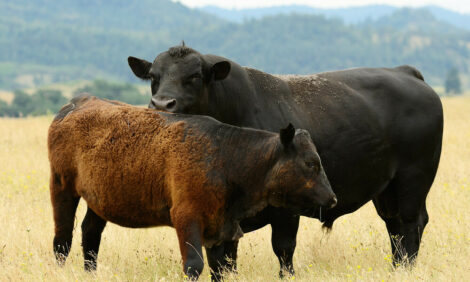



Tighten Border Controls To Prevent Disease Spread
SCOTLAND, UK - National Farmers' Union (NFU) Scotland has written to HM Revenue & Customs calling for greater resources to be targeted towards preventing illegal imports of food into the UK following a growing number of animal disease outbreaks in other parts of the world. The letter was copied to the Chief Veterinary officers for Scotland and the UK.In Southern Russia, African Swine Fever (ASF) is now deemed to be out of control and, in the past week, several new cases in Northern Russia have brought the devastating pig disease much closer to European Borders. At the same time, Foot and Mouth Disease (FMD) still presents a risk and is known to be present in a growing number of areas including Bulgaria, South East Asia, Libya, and South Africa.
The UK’s island status should afford it a high degree of protection from any animal disease reaching our shores. However, the alarming spread of such diseases has prompted calls from NFUS for greater resources to be directed toward policing border entry points at ports and airports. The Union has also asked for a higher profile information campaign targeted at travellers highlighting the risks from bringing in illegal food imports. Both issues must be tackled to deliver the necessary level of protection for UK livestock farmers.
Speaking from Brussels, where meetings are taking place on cost and responsibility sharing for animal health and welfare, NFU Scotland President Nigel Miller said: “There is ever increasing pressure on farmers to protect themselves against disease and ‘share responsibility’ for outbreaks but for many exotic diseases, there is only so much farmers can do on farm.
Illegal food imports run the risk of bringing in a number of diseases, many of which would have devastating consequences for our crucial livestock industry in Scotland, and proper focus must be given to preventing these diseases reaching here in the first place.
“While we appreciate that efforts have been made to step up border controls, these entry points into the UK still present the greatest risk of disease arriving here. Policing at control points and the level of illegally imported meat found are, at best, an indication of the scale of the threat that our livestock regularly face. The reality is that the threat is currently increasing and we believe the Government needs to respond accordingly.
“In southern Russia, ASF is rife and this week saw an alarming spread to several areas in the north of the country, bringing the disease dangerously close to European borders. The huge distances between the Russian outbreaks suggests that the transport of food is involved and that feeding infected food scraps through swill to backyard pigs is spreading the disease.
“There is clearly an increased risk of infection present in pig meat and pig products from Russia. Although importing meat or meat products from Russia as personal imports is illegal, we believe the heightened risk at this time justifies the Government putting additional resources into policing ports of entry. It needs to step up the level of information directed at travellers and bolster enforcement to prevent any imports of food being brought in illegally.
“Publicity on illegal food imports at ports and airports remains poor and lags behind the level of information found when entering countries like Australia, New Zealand and the USA. NFUS would like to see improved signage within all points of entry to help raise public awareness. The risk of disease transmission from imported food must be better promoted and may be the most effective measure, particularly against casual imports from the EU.
“At the same time, all pig farmers must continue to play their part by ensuring their herd biosecurity is up to scratch. That isn’t just a message for commercial pig producers but must also extend to the growing number of hobby farmers keeping small numbers of pigs. It is timely to remind all that swill feeding is banned here in the UK and that food scraps and catering waste must not be fed to pigs.
“Improved policing at ports and airports and a heightened information campaign directed at travellers will help minimise the threat posed by food imports. The reality is that, with devastating livestock diseases continually circulating in other parts of the world, we need an increased commitment for those charged with enforcement here in the UK if we are to permanently prevent them reach our shores.”
TheCattleSite News Desk


